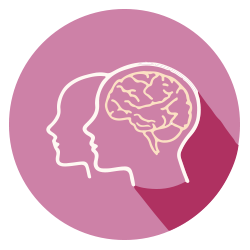Psychology Podcasts Worth Listening To: Hidden Brain
Relevant topics Research, Archive
Marketing and psychology are thick as thieves: by increasing their knowledge on psychology, marketeers are able to gain a deeper understanding in the behavior of their customers. However, keeping your knowledge up to date may be problematic in this quickly expanding field. In the past, people read books, scientific journals or attended conventions.
With the increasing work pressure, increase in amount of deadlines, and uprise of the 24/7-economy, people simply don’t have enough time for these traditional ways of keeping up with the newest scientific developments. Podcasts have the ability of solving this time-related issue, as they are easily combined with everyday tasks as traveling, eating or working out. Especially if you listen to them on double speed 😇
As we are developing our own psychology marketing podcast, we have done some extensive research. One of our top-8 podcasts on marketing psychology is Hidden Brain.
With more than two million downloads per week, Hidden Brain hardly is a hidden gem. As it is less focused on neuromarketing, this podcast is recommended for those who want to more about psychology in general. Hidden Brain’s high-quality content highlights the relationship between our unconscious mind and our behavior. Examples of blog topics include tunnel vision, why you never feel rich, and the similarity effect.
The Scarcity Trap: Why We Keep Digging When We're Stuck In A Hole
Why do hungry shoppers buy more? Why does time seems to fly by when you have multiple deadlines in a week? Why do less wealthy people keep spending more than they earn? This episode of the podcast dives into the topic of scarcity. As something fundamental to a human being is missing, for example food, the brain focuses on it.
To solve this problem on the short term, the brain gets obsessed with the scarce good and reinforces indulging in it. However, such a scarcity mindset leads to the development of new, long-term problems: the hungry shopper is now stuck with groceries past their expiration date. The poor spend more. The stressed focus only on time ticking away, thereby forgetting to actually work.
Bonus for the Dutchies 😇
Do you speak Dutch? Then we've got some great news for you! Unravel Research - the leading neuromarketing agency from The Netherlands is famous for its weekly webinars. And now they've turned these webinars into podcasts too.
You can listen to them on your favorite platform. Just search for: Neuromarketing & Gedragsbeïnvloeding met Unravel, or go to: https://podcasters.spotify.com/pod/show/unravel-neuromarketing
Why No One Feels Rich: The Psychology Of Inequality
To truly appreciate what one has, people are predisposed to compare themselves and their possessions to others. As opposed to the belief of accounts or economists, people only look at the relative difference between themselves and others. This episode highlights inequality and how it influences the way we think, live, and die. When comparing ourselves to others, we can compare ourselves to the less fortunate (i.e., downward comparison) or the more fortunate (i.e., upward comparison). We rarely use downward comparison - instead, we more frequently use upward comparison. This results in a feeling of inequality, unfairness or even injustice.
In this episode, the host uses air rage as an example. As airline passengers walk through the first class to their seats in the economy class, they are more likely to show air rage as compared to passenger who did not walk through the first class. When inequality becomes salient, our behavior changes.
https://www.npr.org/2019/04/19/715145723/why-no-one-feels-rich-the-psychology-of-inequality
Me, Myself, and IKEA: What Our Love For Swedish Furniture Says About Narcissism
Have you ever felt that instant connection with someone with the same birthday or name? This episode focuses on the Narcissus effect or implicit egotism. Similarity draws people closer together, as we are basically narcissists: We like people who remind us of ourselves.
This effect has far-reaching effects: we might marry someone who has a similar name to our own; go to the same hair stylist for decades as they share our birthday; we might even move to states with names similar to our own (for example, a girl named Virginia living in the state Virginia). The podcasts also explores if and why people have professions that sound like an echo of their (sur)name: Bakers are more often bakers, Carpenters are more likely to be carpenters, and Mason is more likely to be occupied in the mason industry.
Do these topics spark your interest? Hidden Brain launches a new episode each week. Additionally, New Neuromarketing has been developing their own podcast. In the very near future, New Neuromarketing will launch their first episode. Stay tuned!
Further Reading
-
To round or not to round
Pricing directly affects the consumer’s opinion about a product. A slight difference in price can have a major impact on how the consumer feels about buying - and even his or her opinion on the quality of - the product.
Now, let’s discover if, why and how you should change your prices.


